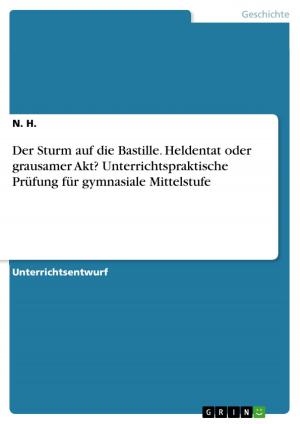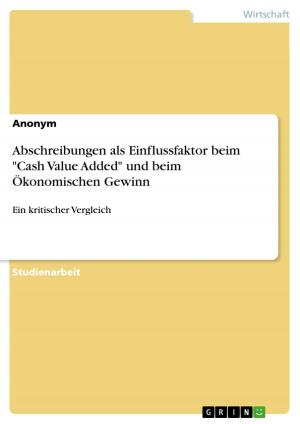The perception of men and women and the aspect of misogyny in William Wycherley's 'The Country Wife'
Fiction & Literature, Literary Theory & Criticism, British| Author: | Claudia Wipprecht | ISBN: | 9783638812771 |
| Publisher: | GRIN Verlag | Publication: | June 13, 2007 |
| Imprint: | GRIN Verlag | Language: | English |
| Author: | Claudia Wipprecht |
| ISBN: | 9783638812771 |
| Publisher: | GRIN Verlag |
| Publication: | June 13, 2007 |
| Imprint: | GRIN Verlag |
| Language: | English |
Seminar paper from the year 2006 in the subject English Language and Literature Studies - Literature, grade: 1,3, University of Erfurt (Philosophische Fakultät), course: Restoration Comedy, 4 entries in the bibliography, language: English, abstract: The re-opening of the theatres in 1660 after 18 years of banishment announced a rebirth for English drama. The following period was called Restoration and was quite popular primarily for the sexual explicitness, which was highly encouraged by Charles II. Socially diverse audiences watched the crowded and bustling plays. 'Variety and dizzying changes are typical of Restoration comedy' (http://en.wikipedia.org/wiki/Restoration_comedy). The era of Restoration comedy culminated twice: in the mid-1670s with aristocratic comedies and in the mid-1690s with the acceptance of a wider audience. The comedies of these two times are extremely different from each other. William Wycherley's works are an example of the gold 1670s era and are quite 'hard' representing ceaseless machinations and conquest in an aristocratic macho lifestyle. The play that is going to be examined was written in 1675 and mirrors an aristocratic and anti-Puritan ideology. It is based on different plays by Molière with some added features like colloquial prose dialogue, a complicated, bustling plot gallimaufry, and many sex jokes. It contains two insensitive plot devices: a libertine pretending being impotent in order to have secret affairs with married women and a young country wife discovering the pleasures of city life, especially the spellbinding men. The play itself was a subject to elaborate praise and moral outrage. A lot of critics appreciated the linguistic energy and wit. Nowadays the original play is a stage favorite again, especially due to the linguistic finesse, the incisive social satire, and the openness to different interpretations.
Seminar paper from the year 2006 in the subject English Language and Literature Studies - Literature, grade: 1,3, University of Erfurt (Philosophische Fakultät), course: Restoration Comedy, 4 entries in the bibliography, language: English, abstract: The re-opening of the theatres in 1660 after 18 years of banishment announced a rebirth for English drama. The following period was called Restoration and was quite popular primarily for the sexual explicitness, which was highly encouraged by Charles II. Socially diverse audiences watched the crowded and bustling plays. 'Variety and dizzying changes are typical of Restoration comedy' (http://en.wikipedia.org/wiki/Restoration_comedy). The era of Restoration comedy culminated twice: in the mid-1670s with aristocratic comedies and in the mid-1690s with the acceptance of a wider audience. The comedies of these two times are extremely different from each other. William Wycherley's works are an example of the gold 1670s era and are quite 'hard' representing ceaseless machinations and conquest in an aristocratic macho lifestyle. The play that is going to be examined was written in 1675 and mirrors an aristocratic and anti-Puritan ideology. It is based on different plays by Molière with some added features like colloquial prose dialogue, a complicated, bustling plot gallimaufry, and many sex jokes. It contains two insensitive plot devices: a libertine pretending being impotent in order to have secret affairs with married women and a young country wife discovering the pleasures of city life, especially the spellbinding men. The play itself was a subject to elaborate praise and moral outrage. A lot of critics appreciated the linguistic energy and wit. Nowadays the original play is a stage favorite again, especially due to the linguistic finesse, the incisive social satire, and the openness to different interpretations.















